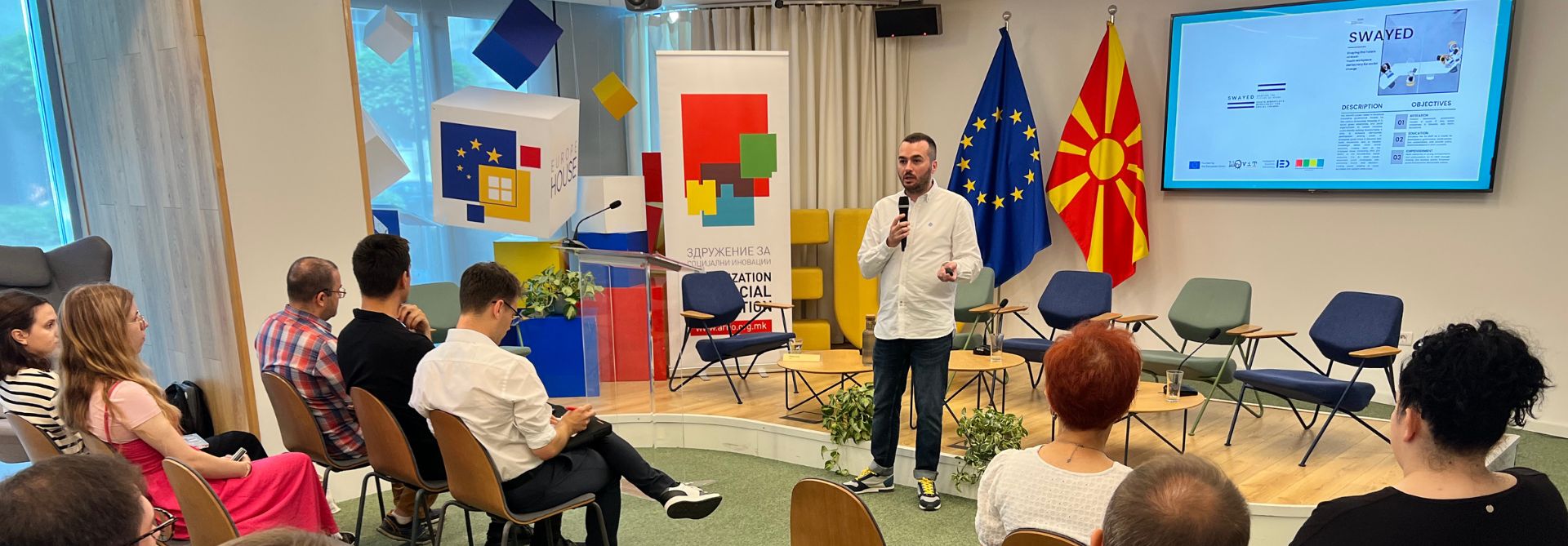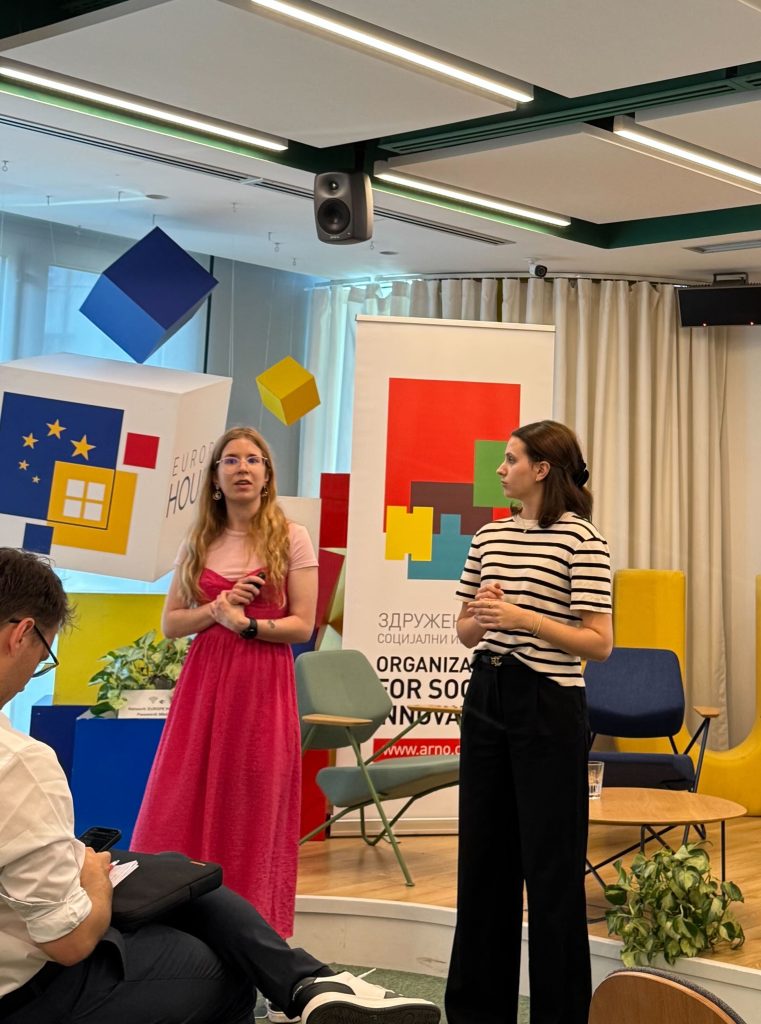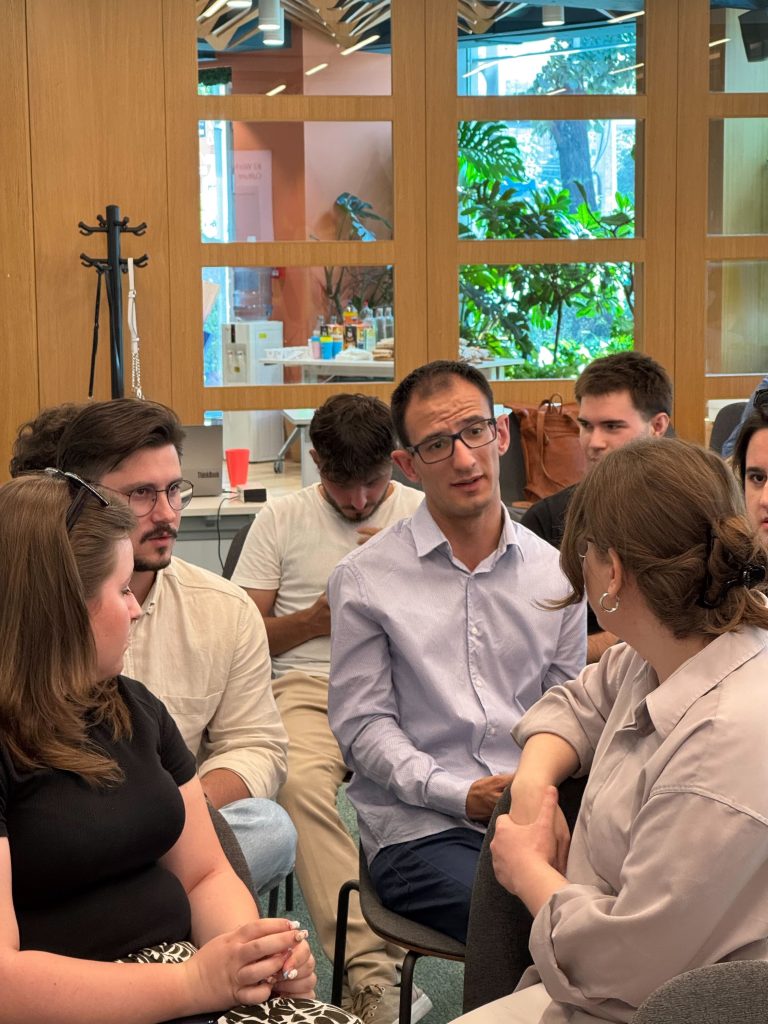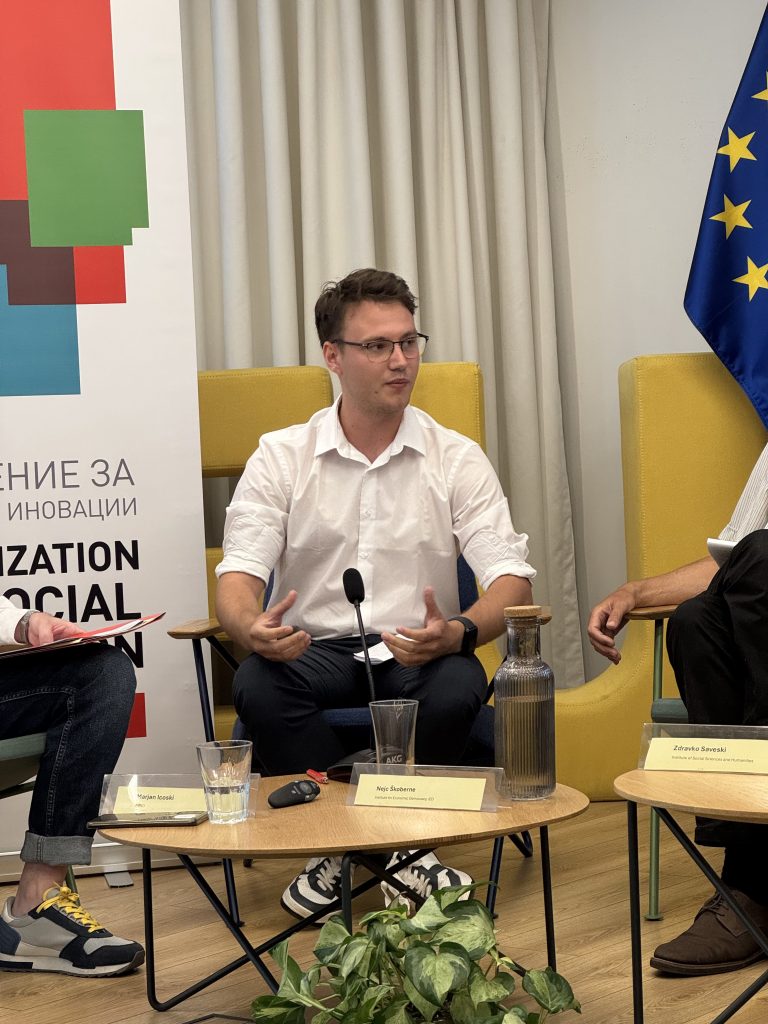
Forum in Skopje: Youth Discuss Economic Democracy and Employee Ownership
On June 19th, 2025, at Europe House Skopje, the Youth Forum on Economic Democracy and Employee Ownership took place as the final activity within the Erasmus+ project Shaping the Future of Work: Youth Workplace Democracy for Social Change (SWAYED). The Forum was organized by ARNO and the Institute for Economic Democracy from Slovenia.
The Forum raised questions about the future of work and the opportunity for young people to influence corporate culture through economic democracy models such as ESOP – Employee Stock Ownership Plan. At the very beginning of the Forum, Brin Kaplan from the Institute for Economic Democracy (Slovenia) gave a brief overview of the ESOP model, economic democracy, and employee ownership. Through two thematic panels and one interactive workshop, the challenges and potential of these alternative approaches were analyzed, with a special emphasis on their potential to serve as sustainable solutions to the socio-economic problems young people face today.
The first panel focused on the topic “Corporate Culture, Youth Talent and Business Succession – Challenges or Opportunities for Companies in North Macedonia and Slovenia”, featuring speakers Sebastjan Pikl – Institute for Economic Democracy (Slovenia); Durim Zekiri – Economic Chamber of North-West Macedonia (North Macedonia); Prof. Dimitar Jovevski – Faculty of Economics at Ss. Cyril and Methodius University in Skopje (North Macedonia); and Aleksandra Šoldova Spasovska – Women In Tech Macedonia (North Macedonia).

Sebastjan Pikl from the Institute for Economic Democracy, who spoke at the panel, emphasized:
“Worker co-ownership is not a utopia, but a reality that successfully functions in developed economies. In the US, over 14.7 million workers are co-owners through ESOP models, while in the United Kingdom there are nearly 2,000 companies with this structure. Slovenia will soon adopt the Workers’ Ownership Cooperatives Act, which will facilitate the transfer of ownership in small and medium-sized enterprises, especially in the context of a succession crisis — 40% of current owners will transfer ownership in the next ten years, yet 66% do not have a succession plan. I am proud that we are bringing this experience to Skopje and, together with ARNO, opening up new spaces for ideas about the future of work and ownership.”
“In our region, when we talk about social entrepreneurship, we mostly focus on profit reinvestment, but we rarely talk about who governs and makes decisions. That governance aspect is actually an indicator of how inclusive the business models of social enterprises really are. With this project, ARNO aims to open up this topic as well and help social enterprises build fair and sustainable governance structures. Currently, this model is attracting the greatest interest among IT startups, which are more open to governance innovation and to fair and equitable treatment of their employees. We often encounter startups founded by friends and colleagues who want to maintain a horizontal structure that is democratic and fair to everyone, reflecting the company’s corporate culture. But beyond inclusion and democracy, ESOP models bring higher productivity, resilience and growth for the companies themselves and are becoming increasingly popular in companies around the world. It is interesting to mention that during recent global crises, including the COVID-19 pandemic, ESOP companies showed the best results and retained their employees despite all challenges.”, said Marjan Itzoski from ARNO.

The second panel, titled “Employee Ownership and Economic Democracy as a Sustainable Solution to 21st Century Socio-Economic Challenges,” presented the ESOP model as a concrete example for creating fairer, more inclusive and democratic work practices. Speakers on the second panel were Nejc Škoberne – Institute for Economic Democracy (Slovenia); Prof. Zdravko Saveski – Institute of Social and Humanistic Sciences (North Macedonia); Dejan Aleksov – Aleksov & Memishi Law Firm (North Macedonia); Monika Zajkova – Member of Parliament, Liberal Party (North Macedonia); and Aleksandra Loparska-Iloska – Public (member of DIESIS) (North Macedonia).

As part of the Forum, participants had the opportunity to take part in an interactive workshop led by Teja Sapač and Maša Petrovič from the Institute for Economic Democracy (Slovenia). Through teamwork and case studies, they applied newly gained knowledge to real challenges related to work, ownership, and collective decision-making.
The Forum was also an opportunity for networking and exchanging ideas among young people, representatives from academia, civil society and the business sector. Through active discussion and practical case studies, participants gained insight into how democratic economic models can create fairer, more inclusive and sustainable workplaces.

The project “Shaping the Future of Work: Youth Democratic Workplaces for Social Change” is implemented by the Institute for Economic Democracy – Slovenia (coordinator) and the Association for Social Innovations “ARNO” – North Macedonia. The project is funded by the Erasmus+ Program of the European Union. Through this project, various activities and resources are being developed to promote employee ownership models, democratic governance, and social innovations, enabling young people to actively participate in shaping the future.













